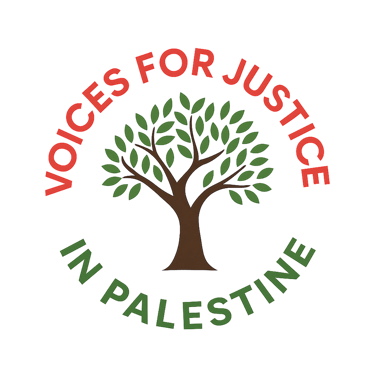What Now? Trump, Palestine, and the Path Forward
A second Trump term will raise the costs of dissent, but the movement for Palestinian liberation remains committed to ceasefire, accountability, and an end to U.S. military support for Israel.
Rev. J. Mark Davidson
11/8/20242 min read


People have asked me, “Now that the election has been decided, and we have Trump for the next 4 years, what does this mean for the movement for Palestinian liberation?” In many ways, it changes nothing. We are as committed as ever to the liberation of the Palestinian people from Zionist colonization, apartheid rule, ethnic cleansing, and genocide. “Free Palestine” remains the watchword of our movement. The demands for Palestinian equal rights and self-determination remain the same. We continue to demand an immediate, complete, and permanent ceasefire in Gaza and Lebanon, massive humanitarian aid into Gaza, the release of the hostages held by Hamas and the thousands of Palestinian prisoners incarcerated in Israeli prisons, and an end to US military aid to Israel. A majority of Americans agree with us. It is past time that this be done.
That said, the new political landscape will bring important new challenges:
There are worrying signs that a Trump administration will take a much more combative approach to Palestinian rights activism, including harsher, more repressive measures to shut down street protests and threaten those who stand against American policy toward Israel. This will not deter us, but it will mean more of us will be dealing with negative consequences that have thus far been limited to our brave student activists, organizers, and disruptors. In other words, the costs of conscience will increase under authoritarian-style rule. And this will require a more determined response from us.
Intersectionality will be more important than ever. The movement for collective liberation, that none of us is free until all of us are free, holds true as our north star. But the members of our coalitions will come under fire from more directions. There is likely to be a rise in Islamophobia and anti-Palestinian bigotry, xenophobic attacks on immigrants, raids, family separations, internment camps, mass deportations. Women in many states will face death from abortion bans and the criminalization of reproductive medical care. The trans community will face increased discrimination and violence. The planned “austerities” will mean deepened Depression-era economic struggles for millions of Americans. The climate crisis will worsen. As usual, the poor and BIPOC communities will bear the brunt of these societal changes. It will take much more energy for us to have each others’ backs and prevent the worst outcomes in the coming days.
All of this means that we need to be wise stewards of our passion and energy for change. This wise stewardship means taking care of ourselves, taking time for
self-care, listening to our bodies when they tell us it’s time to take a break, and grounding ourselves in beauty, hope, and healing. Authoritarians love the Resistance to succumb to exhaustion and hopelessness. Lapsing into inactivity would please them to no end. Committing to disciplines of self-care is not a betrayal of the movement for change; the failure to sustain ourselves for the long haul is the greater betrayal. This moment means remembering that we are not alone, that we have each other, and we are part of a vast global community that seeks justice and sustainability, genuine peace and human flourishing. In the words of Frederick Douglass, “The most monstrous injustices must not reduce us to murmuring and sad withdrawal, but rather increase and embolden our agitation for justice.”
Ever toward a free Palestine and collective liberation,
Mark
